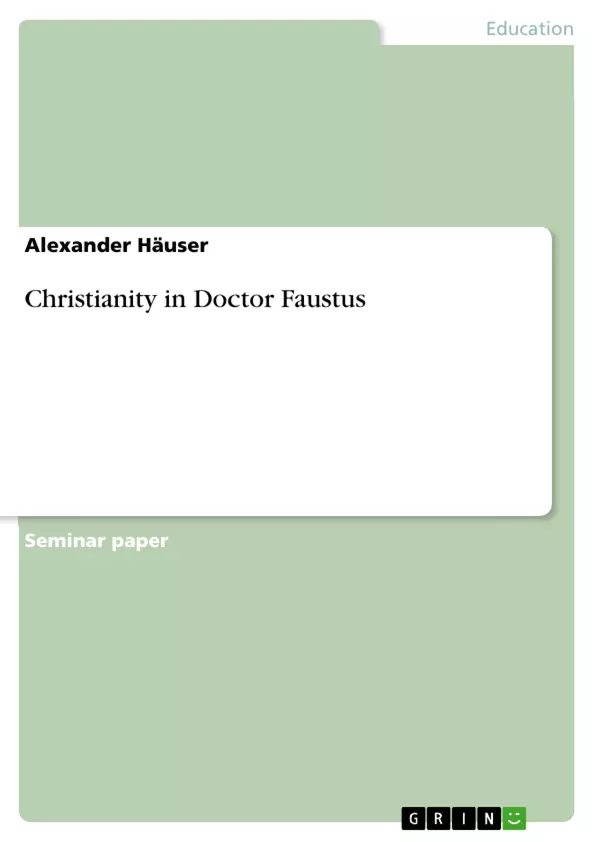Many things are said about Christopher Marlowe, a playwright who died at the age of 29 in a pub in Deptford mysteriously. People say he used to be a spy for the British government and an atheist whose death was “God’s justice on a sinner”. ”A blasphemer who had “denied God and his son Christ … affirming our Saviour to be but a deceiver … and the holy Bible but vain and idle stories”. Whether there is any truth in theses accusations cannot be answered, but although we do not know whether Marlowe was an atheist, it is for sure that Marlowe got in touch with religion quite intensive. This term paper shall point out how Christopher Marlowe dealt with the topic Christianity in Dr. Faustus. As it is clear, that a play that deals with God and the devil cannot leave Christian theology out, particular notes shall be written about the matters of the negative approach towards Christianity, the subject of repentance and the issue how the purgatory is being demonstrated in the play. Therefore examples for these topics will be shown and commented on.
- Arbeit zitieren
- Alexander Häuser (Autor:in), 2009, Christianity in Doctor Faustus, München, GRIN Verlag, https://www.grin.com/document/143802



